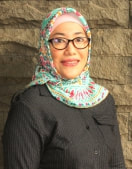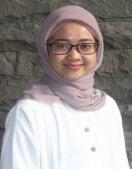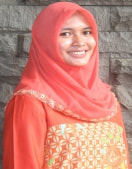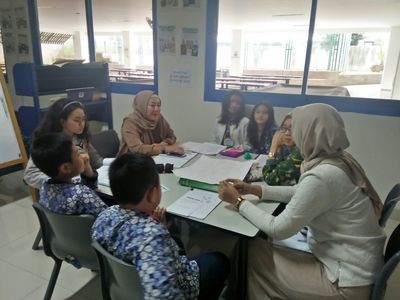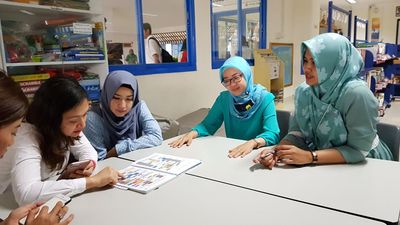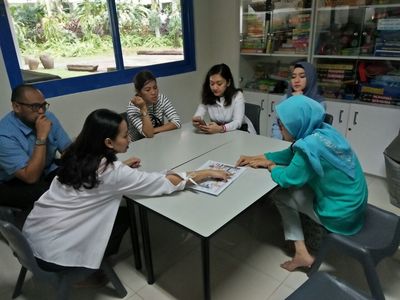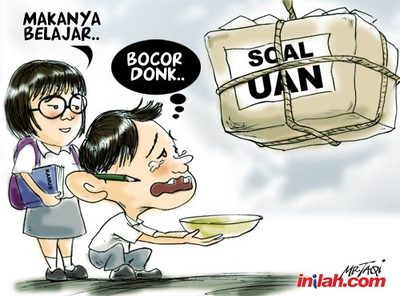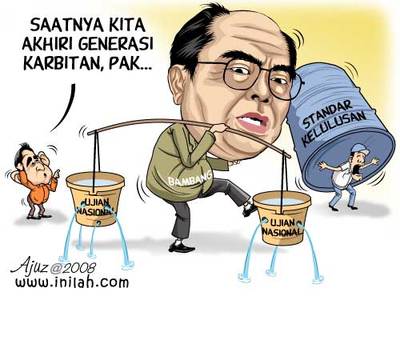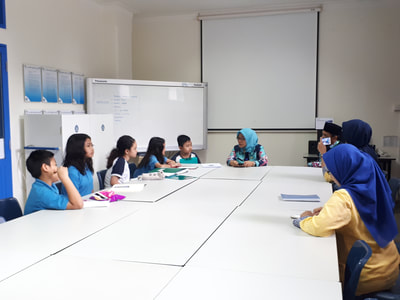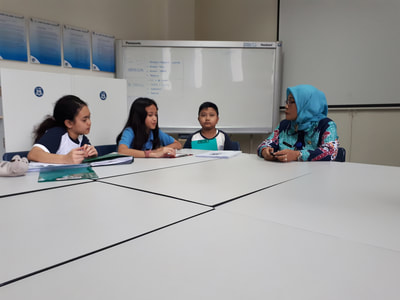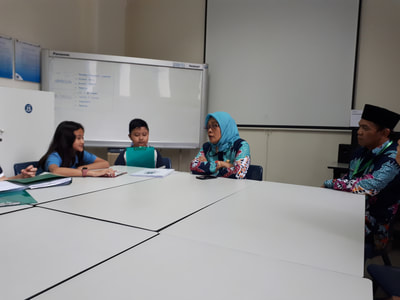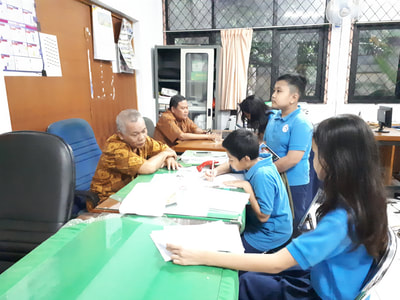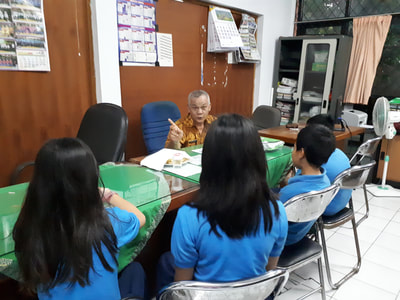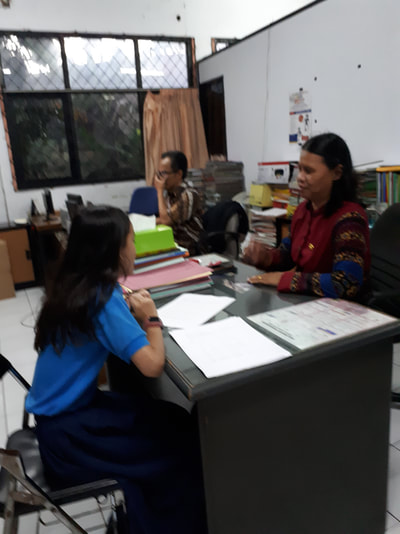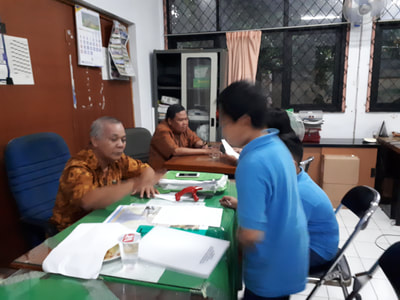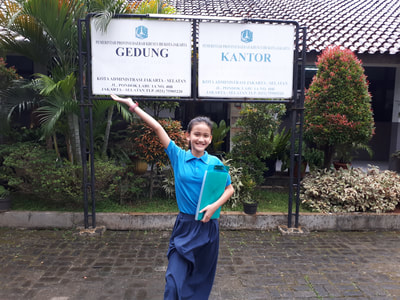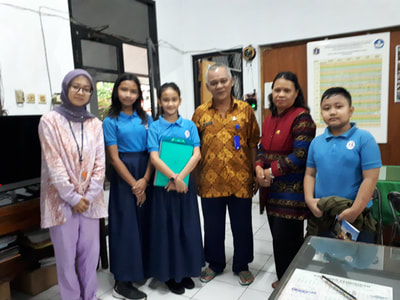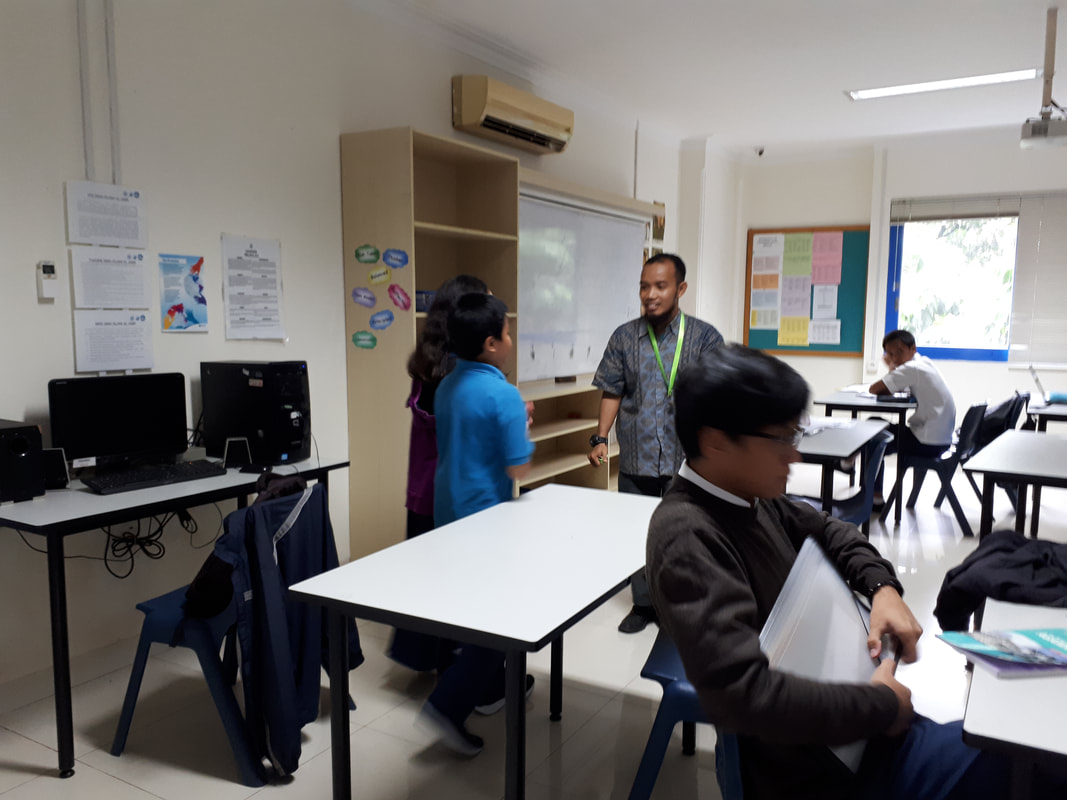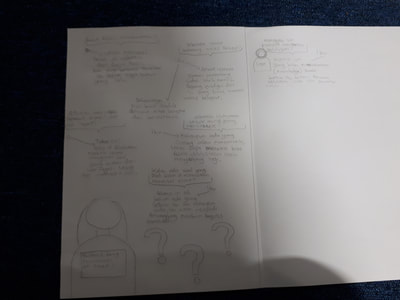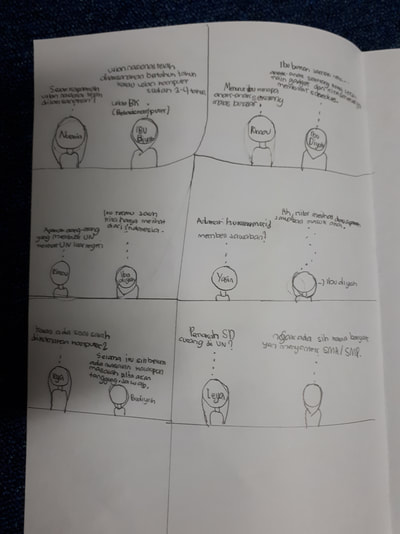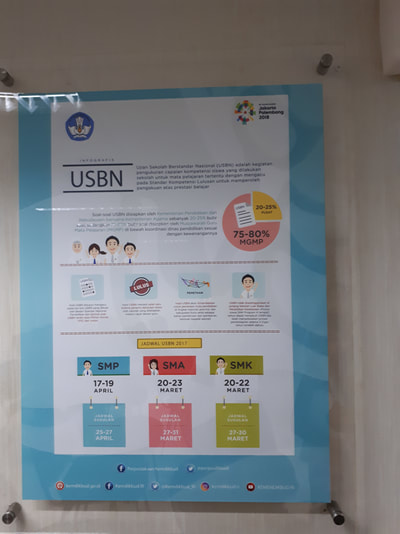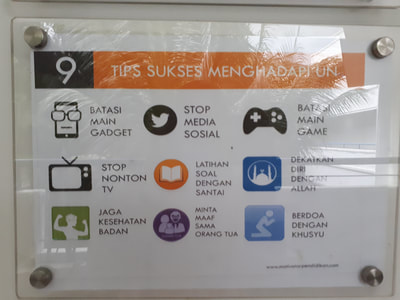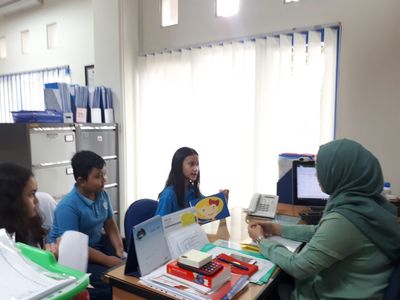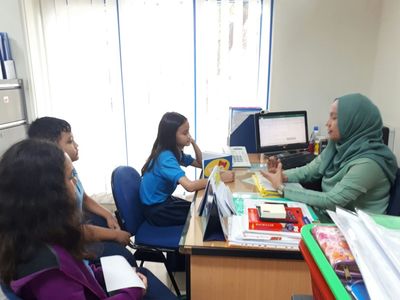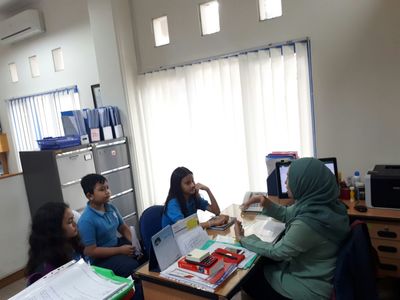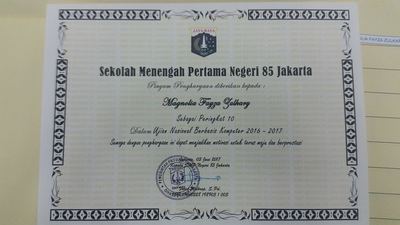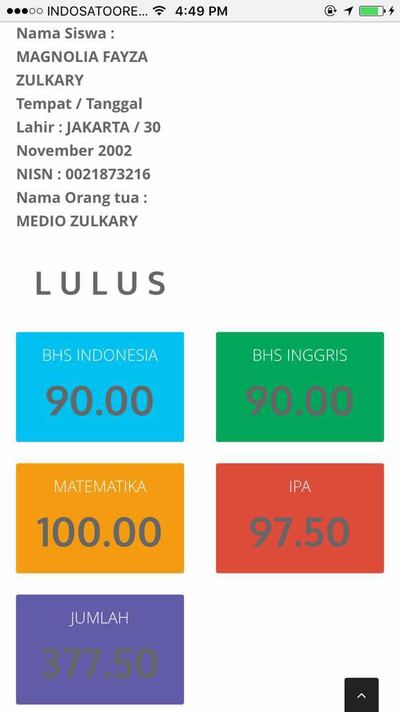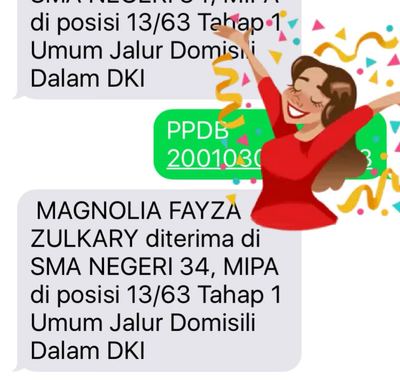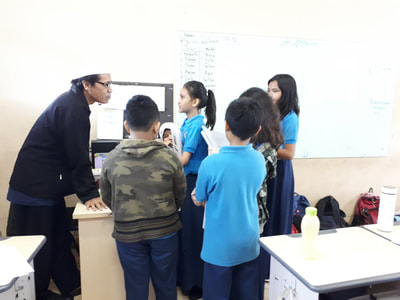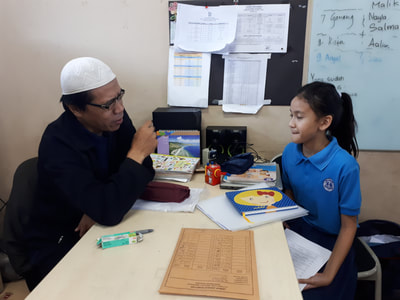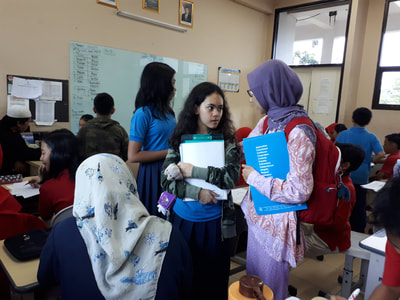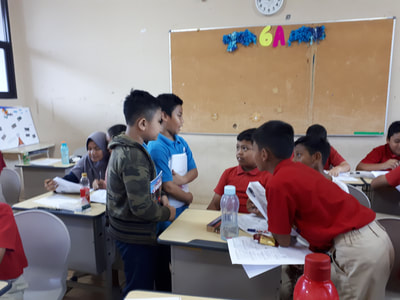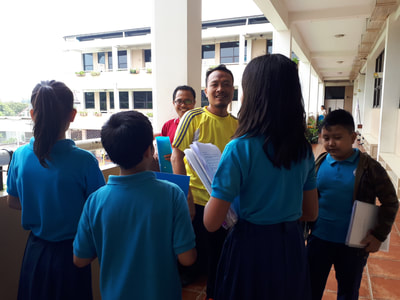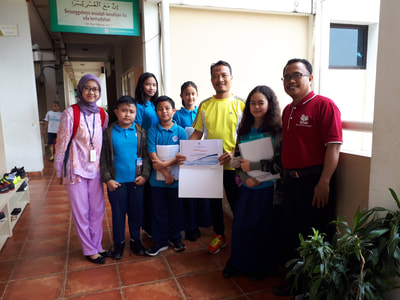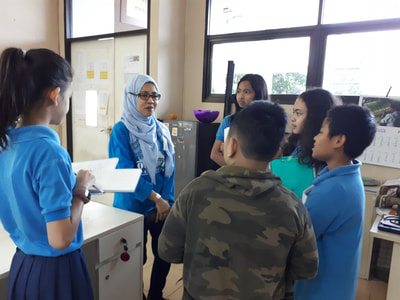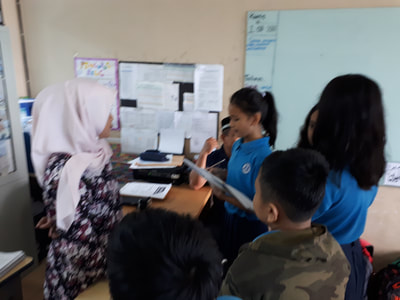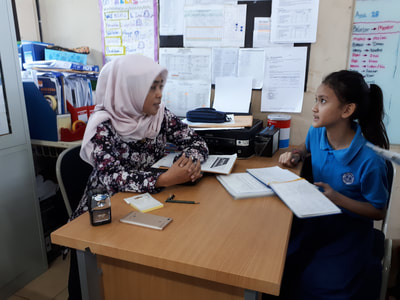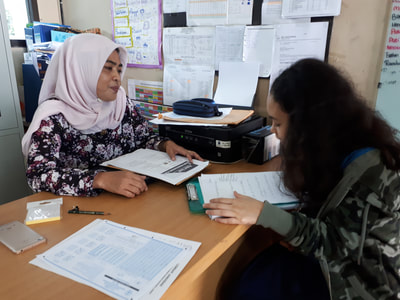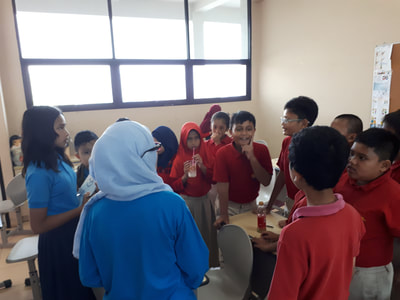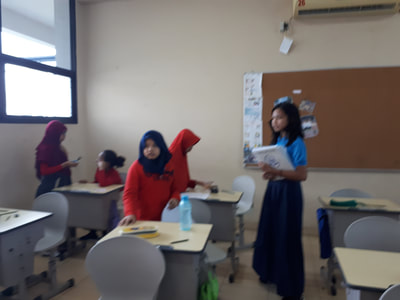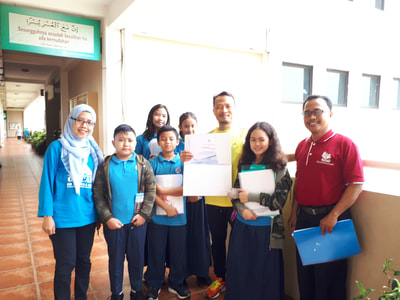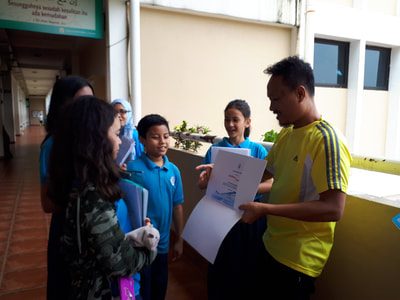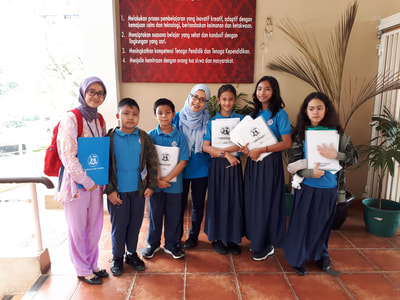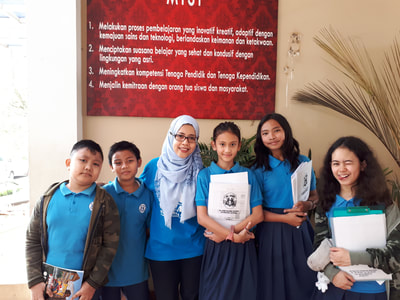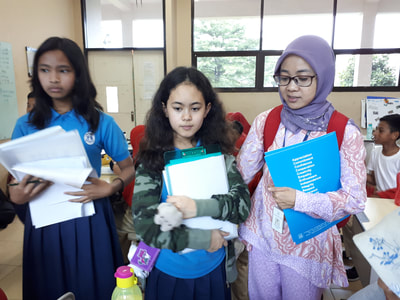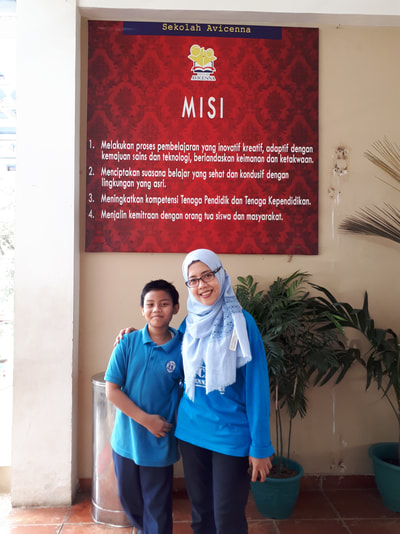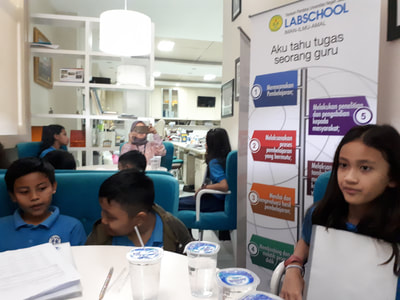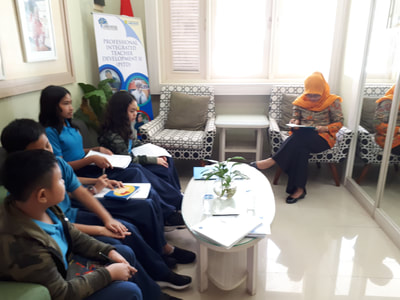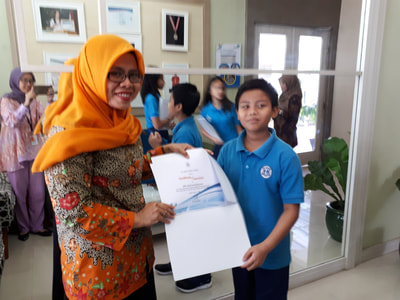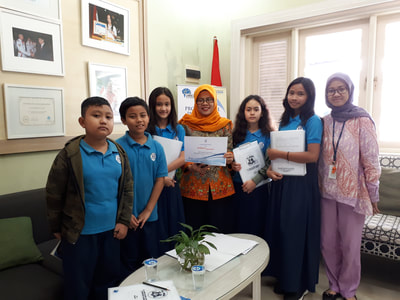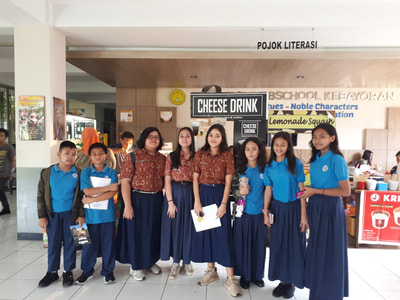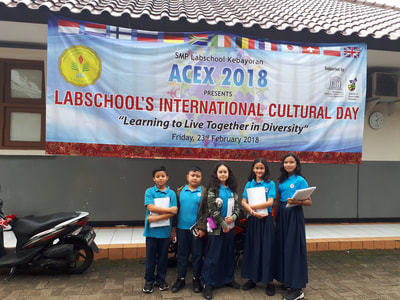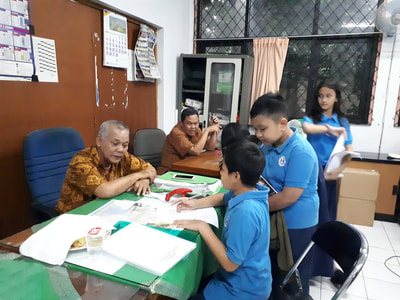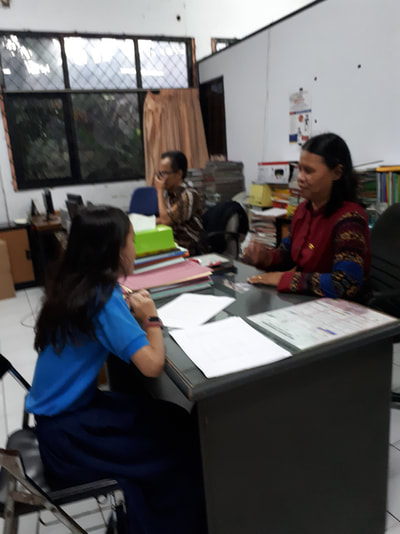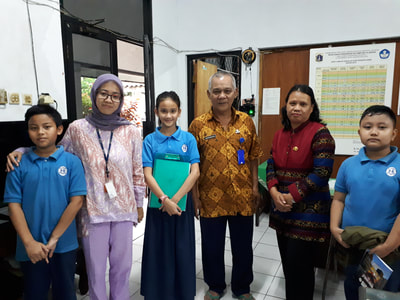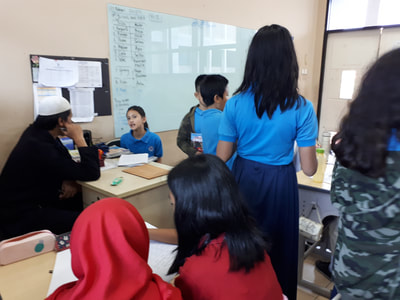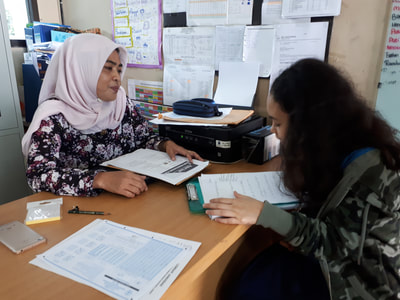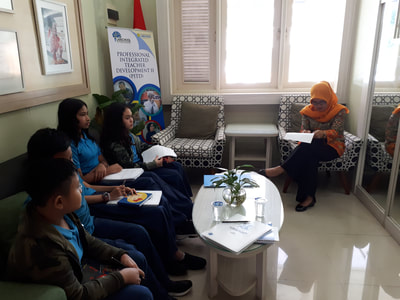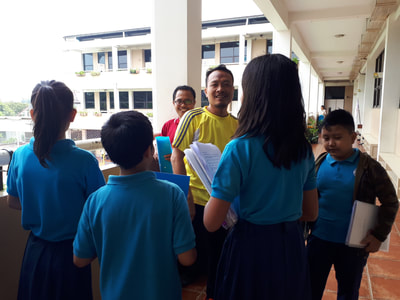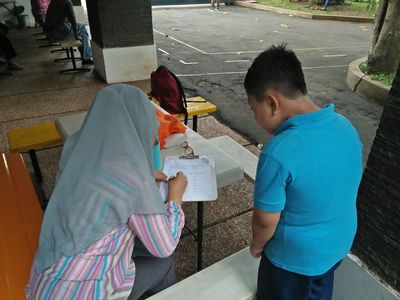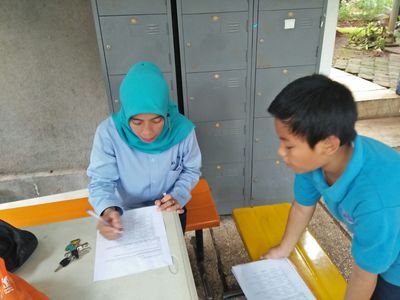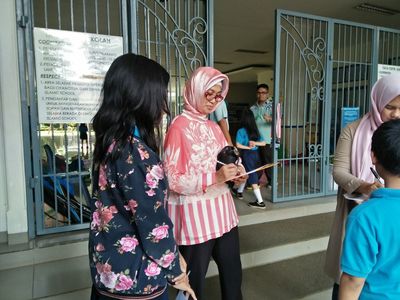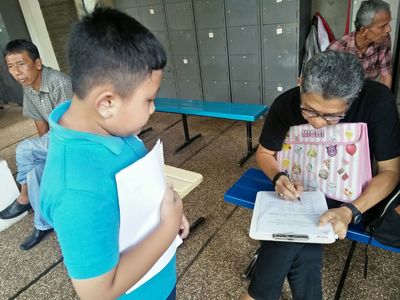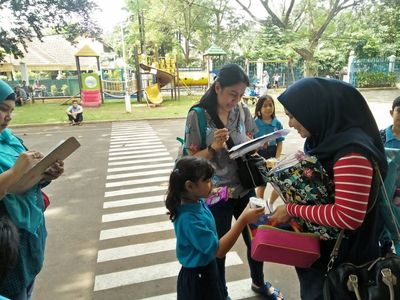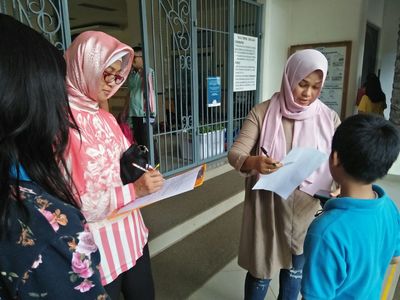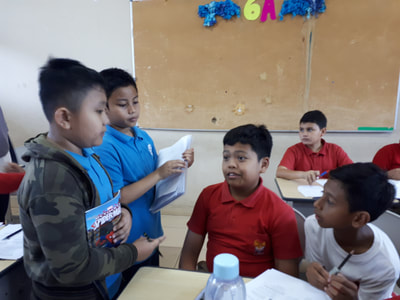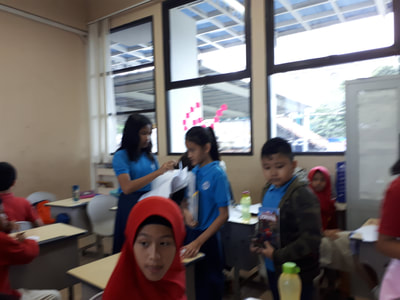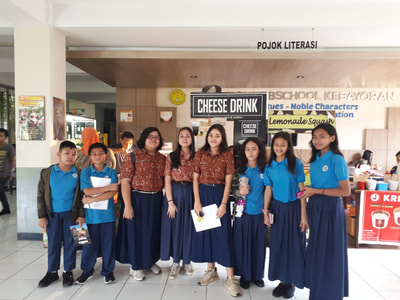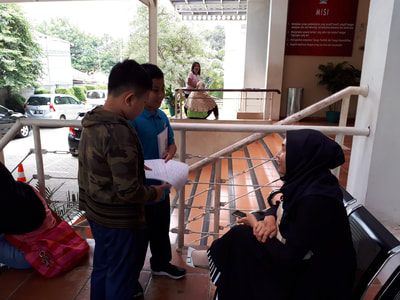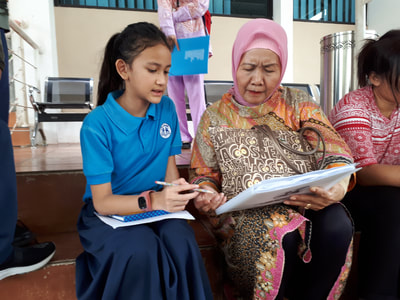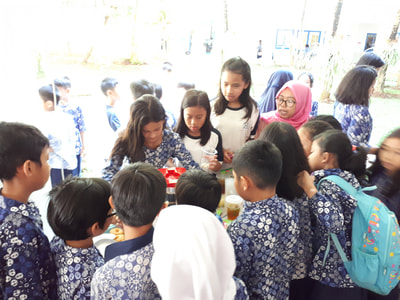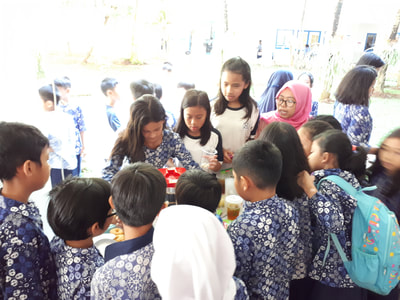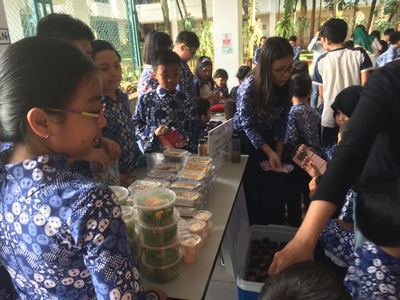The Indonesian national examination
Mentors
|
Ms.Shanti
“The USBN in elementary schools will be conducted in three subjects: mathematics, science and Indonesian.In secondary education, the USBN will cover all subjects.
|
Ms.Hana
National Examination as a form of assessment is the gathering and analysis of information about student performance. It identifies what students know, understand, in the learning process.
|
Ms.Fani
The goal is to end the current habit of teachers, who tend to depend on the Education and They need to develop such competency to improve themselves.
|
|
Unit of Inquiry: How We Organize Ourselves
Topic: National Examination as a form of Assessment) Central idea: Government systems influence the lives of citizens Key concept: Function, responsibility and perspective Related concept: Equality, citizenship, governance,law and politics Lines of Inquiry:
|
Learning Outcomes:
|
Essential meeting planning (January 9th, 2018)
These meeting are very important to discuss about our exhibition objectives , we are (mentors, parents and students) gathered to fill in the essential agreement and possible line communication used to access resources and home project info. PYP exhibition timeline published to inform exhibition planning and parents can support to this project.
These meeting are very important to discuss about our exhibition objectives , we are (mentors, parents and students) gathered to fill in the essential agreement and possible line communication used to access resources and home project info. PYP exhibition timeline published to inform exhibition planning and parents can support to this project.
Tuning In (Exploring, wondering and questioning)
|
Inquiry skills exhibition
Meeting Mentors Week 1
(22 January-26 February 2018) |
Provocation
Learning Objective: Students are able to reflect what they know about assessment and examination, the pictures help students to describe their prior knowledge about the topic. 1. Use brainstorming and visual diagrams to generate new ideas and inquiries, students created webbing to identify about summative assessment and examination. 2. Inquire in different contexts to gain different perspective.This activity called talk to the picture. 3. Inquiry grid as their planning of exhibition goals. |
Teacher's questions:
What is assessment?
What advantage and disadvantages educators and learners got toward assessment?
what kind of assessment do we have at school grade 1 to 6?
What is national examination?
Why does it become standard in Indonesia?
What is assessment?
What advantage and disadvantages educators and learners got toward assessment?
what kind of assessment do we have at school grade 1 to 6?
What is national examination?
Why does it become standard in Indonesia?
Finding Out (Researching and Seeking information)
Meeting Mentors 2
(29 January-02 February 2018)
(29 January-02 February 2018)
Interviewed
What is Unas?
National Exam commonly abbreviated as UN / UNAS is a standard evaluation system of primary and secondary education in Indonesia and the equation of quality of education levels among the areas that conducted by the Center for Educational Assessment, Depdiknas in Indonesia based on Undang-Undang Republik Indonesia nomor 20 tahun 2003 states that in order to control the quality of education nationwide to be evaluated as a form of accountability of education providers to the parties concerned.
Further stated that the evaluations conducted by independent agencies on a regular basis, comprehensively, transparently, and systematically to assess the achievement of national education standards and the monitoring process evaluation should be done continuously. Evaluation of the monitoring process is carried out continuously and continuous in the end will be able to fix the quality of education. Improving the quality of education begins with the determination of the standard. Determination standards continue to rise is expected to encourage increased quality of education, which is the determination of educational standards is the determination of the limit value (cut-off score). Subject in Elementary School Bahasa Indonesia Maths Science references : http://en.wikipedia.org/wiki/Ujian_Nasional#Elementary_school https://litbang.kemdikbud.go.id/ https://www.kemdikbud.go.id/main/ |
Teacher's questions
The questions guide the student to be able to:
|
Collecting Data and reporting findings
Interviewed to Kasatlak (Kantor Satuan Pelaksana Dinas) South Jakarta and
Head of school SD Pondok Labu 12
Head of school SD Pondok Labu 12
interviewed head of kasudin and team
Students conducted interview Kasudin (Kepala Suku Dinas) and Kasi (Kepala Seksi suku dinas pendidikan) south Jakarta regarding to the issues of national examination.
Field trip to kasi dikdas
|
field trip to balitbang kemendikbud
Students visited Balitbang (badan Pusat Penelitian dan Pengembangan) Kemendikbud to know the role and responsibilities of government to support national examination.
Interviewed al-jabr school's stakeholderInterviewed our school's stakeholder who involved to organize and evaluate national examination based on government rules standard and practice.
| |||||||||||||||||||||||||||||||||||||||||||||||||
Sorting Out (deepening understanding through
the application of a concept)
|
Task
Students analyze article on government’s decision and actions Assignments Criteria
|
field trip data and reflection
| ||||||
Going Further (Making and testing theories)
interviewed parent
Field trip to avicenna
field trip
|
Ryan Aditya Moniaga (18), a student of Kolese Kanisius, Menteng Raya Urban Village, Menteng Sub-District, Central Jakarta, Jakarta, achieved the highest score of national exam (unas) in Indonesia. The total value reached 58.05 (from a maximum of 60) or an average of 9.67, which is highest in Indonesia for Science Major.
Here some tips of his learning strategies that stated to all of us:
| ||||||||||||||||||
Distributing questionnaires as Surveys
|
|
|
|
|
|
|
| ||||||||||||||||||||||||
Conclusion (Clarifying existing ideas and reappraising perceptions of events)

